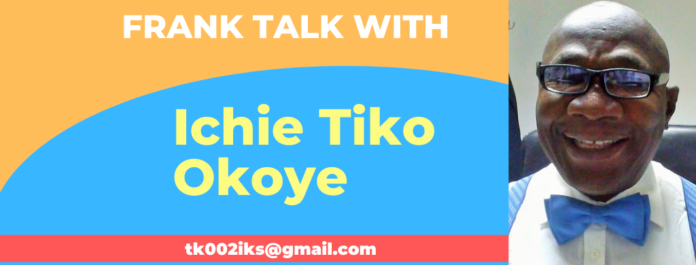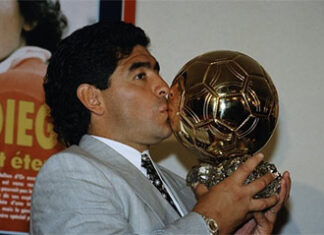Still Burkina Faso, Mali and Niger: Softly-softly is the word!
By Tiko Okoye
With the benefit of hindsight it was quite expected that Mali and Burkina Faso, ruled by military juntas that seized power in coups in 2020 and 2022 respectively – considerably frustrated and piqued by the very harsh criticisms their actions elicited – would immediately rush to support the military brass in Niger who similarly upended the civilian administration of President Mohamed Bazoum in July 2023.
For reasons ranging from self-preservation to playing to the gallery, the reactions from a majority of members of the Economic Community of West African States (ECOWAS) were marked by rasping and indignant speeches. The Nigeria-chaired ECOWAS Authority additionally slammed a number of punitive sanctions on the ‘three musketeers’ and demanded that the coupists either restore the deposed political leaders back in office or crystallize a road map to restoring civilian rule within a “very short” period of time.
It was at this juncture that French President Emmanuel Macron notably boasted that “Without France, there’d be no Mali, Burkina Faso and Niger.” It was an eerie throwback to 1960s when, during the Algerian Struggle for Independence, many French citizens kept screaming: Algerie francaise, meaning Algeria is French! But the North African ultimately gained its independence on 5 July 1962 after eight years of a violent and horrible war.
The three military juntas have likewise called Macron’s bluff and ordered all French troops and diplomats to vacate. Still, the bonds that bind France to her former colonies are very strong, even if asymmetrical, hence the undisguised threat embedded in Macron’s intimidating statement calls for extreme caution. All the foreign exchange earnings belonging to Francophone nations are statutorily held by the French Central Bank and majorly used to ‘manage’ the Francophone Franc (CFA) Monetary System at a high cost.
The French apex bank still deducts hefty charges for the ‘colonial work’ France performed in the past in those enclaves. It’d be very interesting to see how the three nations cut off their umbilical cords and circumvent the daunting obstacles bound to confront them.
READ ALSO: Still on the very engaging 2023 AFCON tournament
A dictum posits that it is only a tree in the forest that would hear loggers planning to hew it down and opt to remain on the same spot. Not being members of the plant kingdom, the leaders of Burkina Faso, Mali and Niger, in a joint statement released after meeting in Bamako, Mali on January 28, announced their withdrawal from ECOWAS. They attributed their decision to the bloc’s drift from the spirit of pan-Africanism, coupled with the failure to stem the insecurity and terrorism in their respective nations.
The ECOWAS Authority ought to have interpreted the statement issued by the three-junta West African countries as no more than a desperate plea for understanding and assistance, instead of condemning the purported exit and describing it as “shocking” because it received no prior notification of the countries’ position. Two African proverbs are germane in this context. The first says that you cannot beat a child and order him not to cry. The second avers that when disciplining an errant child it is preferable to flog him with one hand and draw him close with the other to console him.
ECOWAS leaders must be very careful with hawkish voices stridently demanding that replacing whips with scorpions is the more appropriate way to browbeat the three ‘mutinous’ states into submission. That the Rehoboam solution regrettably ended up splitting the kingdom of Israel into two is enough reason to make the Authority tread very cautiously.
Come to think of it, the three countries are speaking about pan-Africanism while moving into Russia’s orbit. They rue the rising spate of insecurity and terrorism while pan-handling to the foreign Wagner mercenary group. These embedded contradictions apart, can three really work the magic that 15 couldn’t do satisfactorily?
I’m a dyed-in-the-wool democrat who staunchly believes that authoritarianism or dictatorship, whether in khaki uniform or agbada clothes, has no redeeming features on a net-net basis. Between the 1960s and 1980s, Africa was the hotbed of serial military coups. Apart from virtually turning their countries into Hobbesian States where might was right and life was short and brutish, the coupists-reformers ended up being more corrupt than the civilians they very sanctimoniously toppled from power!
That’s why I was filled with so much angst and pain when young men and women without a sense of history, and exhibiting a monstrous display of disrespect of the sacrifices made by many Nigerian patriots of blessed memory who gallantly fought the violent forces of military dictatorship, simply because their preferred candidate lost an election.
It’s worse that a backwater nation like Niger would leverage on the rather infantile graffiti spewed with respect to our institutions of governance on the internet, to glibly utter derogatory in-your-face comments about Nigeria, such as: “Niger has no moral lessons, much less democracy, governance or patriotism, to receive from the current Nigerian authorities.”
Still, President Tinubu shouldn’t mind the insults being hurled at his office and the country he presides over. It’s the house rat that revealed where the fish is kept in the kitchen to the bush rat. Besides, such criticisms – whether or not an overkill – should be used to considerably move the needle on the realisation of the dividends of democracy. We mustn’t forget that Niger and Nigeria have very strong neighbourly and fraternity ties. There’s an ages-old history of cross-border marriages and commercial activities.
What becomes, for instance, of the billions of naira we invested in constructing a standard-gauge railway line to Niger? I strongly advise that power be immediately restored if it’s true that we cut off electricity supply to Niger as part of our punitive sanctions because such matters are guided by the inviolable laws of contract.
All politics is local. It is the man who wears the shoe who knows where it pinches most. Democracy has generally been said to be the best form of government, but it certainly isn’t the only form. And just as one man’s terrorist can be another man’s freedom fighter, it is far better to allow people decide the form of government they want for themselves – and not have outsiders making this decision for them. Let the people validate their own experience – for good or for bad. What ECOWAS heads of government ought to be more rightly worried about is how to avoid the paradox of despotic military rule offering their hard-pressed compatriots a better situation than does civilian and democratic government to become a reality.
I plead with the ECOWAS Authority to be more tolerant. The regional outfit needs more members, not less. United we stand and divided we fall. It’s very much in Nigeria’s interest not to be stampeded by external forces to toe a hard line, as shortfalls in member-contributions are likely to be picked up by Nigeria as “Big Brother” – a very tasking proposition in these dire financial times.
And then there’s the Russian connection by way of the Wagner mercenary group. The way things are going, the region is being set up for another sordid power play by world powers. And we know that it’s the grass usually suffers collateral damage whenever two elephants are slugging it out. This is not to say that military formations should be given a carte blanche to engage in military coups. I just believe that jaw-jaw is much better than war-war.
Na softly-softly dey catch monkey, as we say in the Niger Delta, although it would also go a long way in creating an ambient atmosphere for rethinking a safe landing if the three countries in question tone down their braggadocio and insulting rhetoric.
ECOWAS member-countries must get their act together in terms of providing effective governance and promoting democratic ideals. Why is it that the body fails to speak out when elected officials flout their national constitutions and rule their countries like their private properties? Why don’t the ECOWAS Authority throw down the gauntlet when a head of government subverts the electoral process and sits tight in office for years unending?
How come there has been no condemnation of the unbecoming conduct of supposedly-outgoing Senegalese President Macky Sall, who unilaterally postponed the presidential election to produce his successor, with just 48 hours to go, to December 2024? In accordance with the constitutional reform of 2001, the Senegalese president is elected for a 5-year term, with a limit of two consecutive terms. But the Senegalese strongman who has been in power since 2012 has been deploying every trick in the book to over-extend his stay in office.
However imperfect, however frustrating and however slow, “We the People” ought to still have the greatest check on political power through people power – their vote – in a functioning democracy. Unless African leaders honour the most fundamental check on executive power enshrined in the constitution – the recognition of credible election results – democracy will increasingly assume a sour and bitter taste, turning off many young voters and laying the foundation for violent protests – rather than ballot boxes – as a necessary and sufficient means to effect regime change. Or is it only when soldiers successfully execute a coup that an unpardonable crime is committed against democracy?












